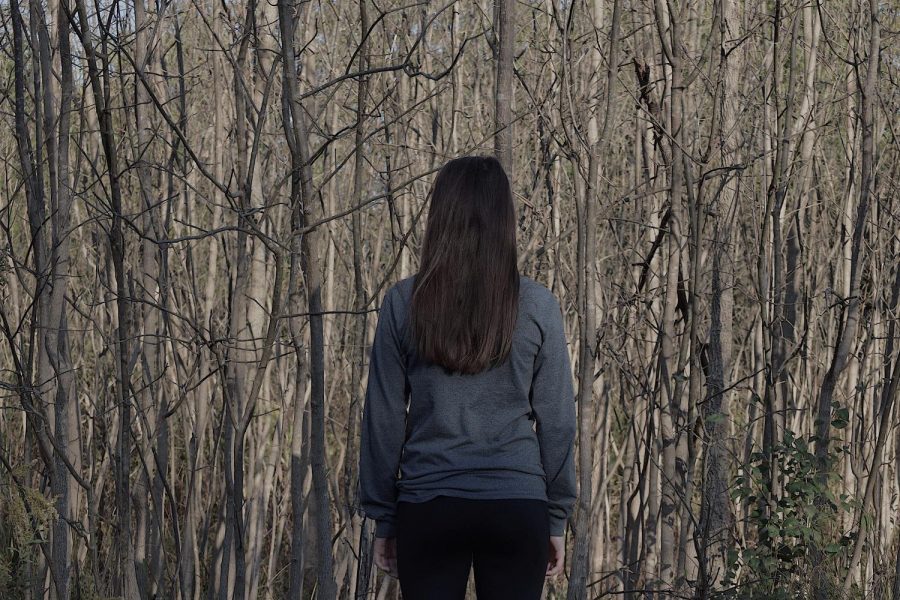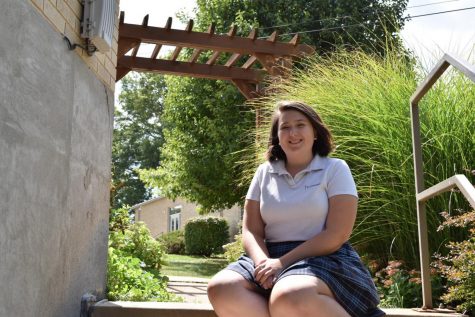It’s More Than High School Stress
High school can be a lot to handle. Between classes, extracurriculars and family pressures, many high schoolers are plagued with feelings of depression and anxiety.
People suffering from depression often feel alone. According to The Center for Discovery, 20% of adolescents will suffer from depression before they become adults—that’s a fifth of our school.
No one is alone in the struggle; approximately 150 students walking the halls of St. Dominic suffer from depression. Whenever you feel like there is no one to turn to, remember that friends and family are there to love you and want to help.
If you are trying to help your loved ones, just be there to listen to them. Make sure to take their feelings seriously and be open to discussion (or lack thereof).
It is essential to become informed about what your friends are dealing with and to never judge their emotions. You don’t have to know the answer. Simply saying, “I am here if you need anything,” can mean the world.
While it is difficult to understand if our friends are dealing with anxiety or depression, it is important to know the symptoms and reach out to them.
For depression, most people suffering from it will have trouble asking for help. There are a few symptoms you can look for: irregular sleep patterns and diet, not completing work, appearing apathetic, lack of concentration and change in weight. If you see these signs in your friends, make sure to check on them. In an extreme case, tell an adult you trust.
If you didn’t know, depression can develop for many reasons: biological chemistry, hormones, inherited traits, early childhood trauma or constant negative thoughts.
Depression can affect everyone differently, which makes solutions vary. First, seek help from a mental health professional. Do not be afraid to talk to them; they want to help. Medication may help people cope with depression, but for most, it is not the only solution. Starting or changing medication can be extremely difficult and straining. It may take months or even years to find the medicine that works for you. Brains develop as you grow older, so you may switch your medication more than a few times over the years. Medication can seem scary, but remember that depression is an illness. A person taking medicine for depression is the same as a person taking medicine for diabetes.
For others, therapy may be the solution for handling depression. It may take a while to find the right counselor for you, but don’t be afraid to look for help. Therapy takes time to get used to; do not worry when it takes more than a couple appointments. At the end of the day, therapy will only help if you are willing to put the work in. For many the answer is not just therapy or medication, but rather a mixture of both.
Don’t be discouraged if the problem isn’t fixed right away; it will take a few adjustments to find the right way to treat depression. It is important to remember that while depression can be systematic for some, for others it is a lifelong struggle that never goes away.

Like depression, anxiety is a major problem among adolescents; according to Anxiety UK, one in six young people are affected. Anxious people may retreat into themselves, disengage in conversation and avoid eye contact. Another person suffering from anxiety may have an aggressive response, becoming angry, moody or agitated. Anxiety is different for everyone, so one person’s reaction could be the opposite of someone else’s.
When suffering from an anxiety disorder, people may experience panic from doing something as simple as ordering food in a restaurant. Anxiety is caused by a heightened fight or flight response, which means that people may jump to their survival instincts in situations others perceive as normal.
For anxiety, there are basic steps you can take to help avoid or overcome panic attacks. If possible, separate yourself from the situation. Another tactic is simply focused breathing; pushing air slowly in and out can make a huge difference. Over a long period of time, people write, draw or exercise to overcome anxiety. Try different things and discover what works for you.
Depression and anxiety can be isolating. It can make you feel alone, even when you’re surrounded with people. If you suffer from anxiety or depression, do not be afraid to ask for help. Talk to a trusted parent, teacher or priest. Remember, you are not alone.
In times of great distress, please use the suicide prevention hotline: 1-800-273-8255.

Rose Stout is a senior at St. Dominic High School. She works off and on stage for every show, leads the robotics media and sings in the chamber choir....

Kaitlyn Bross is a senior here at St. Dominic High School. Besides being the Editor-in-Chief of Crusader Nation, she is involved with varsity lacrosse,...


